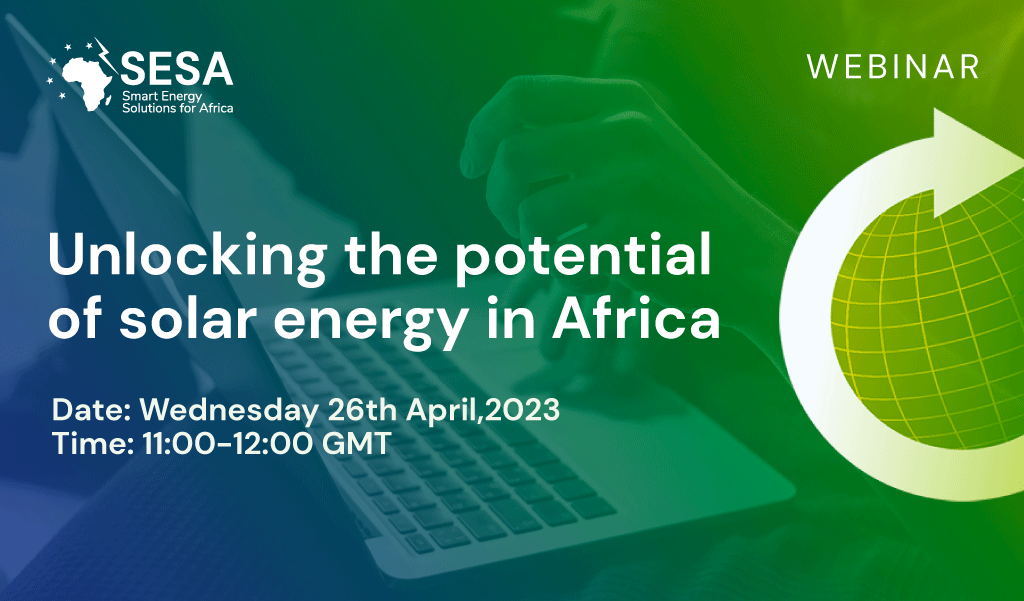Date: Wed 26th April, 11:00-12:00 GMT
Africa is leading in the solar resources and has suitable environment to invest in solar energy in support of its economic growth and embrace a just transition towards a next-zero carbon society. To boost the implementation of solar projects, economic, regulatory and social barriers has to be tackled, within this webinar, the SESA project calls to discuss representatives from National/ local government, international organisations, financial institutions, project developers and end users to share their experience and outline possible future that African countries could build. This webinar brings together individuals from different background and roles: policy makers, practitioners and end users to share their experiences and potentially articulate possible means to unlock the potential for advancing solar energy solutions in Africa.
Smart Energy Solutions for Africa (SESA) is a collaborative project between the European Union and nine African countries (Ghana, Kenya, Malawi, Morocco, Namibia, Nigeria, Rwanda, South Africa and Tanzania) that aims at providing energy access technologies and business models that are easily replicable and generate local opportunities for economic development and social cohesion in Africa. Through several local living labs, it is expected to facilitate the co-development of scalable and replicable energy access innovations, to be tested, validated, and later replicated throughout the African continent. These solutions will include decentralised renewables (solar photovoltaics), innovative energy storage systems including the use of second-life electric vehicle batteries, smart micro grids, waste-to-energy systems (biomass to biogas), climate-proofing, resilience and adaptation, and rural internet access.
Running from October 2021 until September 2025, SESA is the result of a strong partnership between leading European and African universities, research centres, industry actors, local governments, knowledge and implementation organisations and networks. These will be strengthened via peer-to-peer exchange, policy dialogues, regional and international events among others.
This webinar closes the first course of the SESA capacity building programme, a self-paced e learning format which focused on solar energy.



